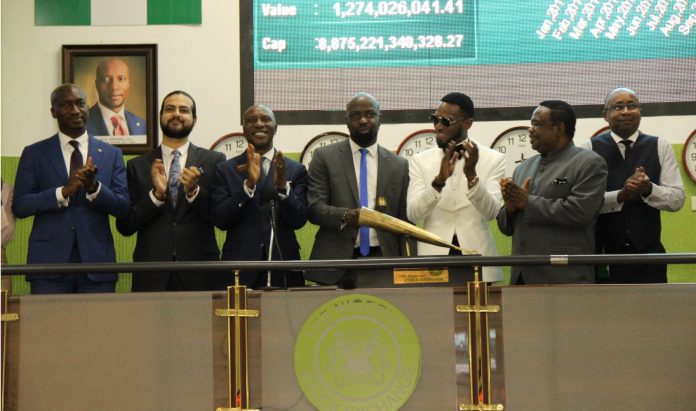
A report by PricewaterhouseCoopers (PwC) has revealed that the Nigerian music industry generated over $51 million in 2016.
The report was presented at the maiden edition of Music Week Africa (MWA) in Nigeria with the theme: “The role of the music industry in revitalizing the economy’ held on the Nigerian Stock Exchange, Lagos at the weekend.
Finance Technology Director, MWA, Raoul Sawhney, said it was possible that the industry made even more money than what was reported by PwC.
He said the auditing firm predicted that it was likely the industry would generate almost $240 million per annum in the coming years.
Chief Executive Officer of the Nigerian Stock Exchange, Mr. Oscar Onyema, said at the event that Nigeria’s entertainment and media market was the fastest-expanding major market globally. He said by 2019, the market would be more than twice as big, with estimated total revenue of $8.1 billion.
While expressing the readiness of the Exchange to partner with credible musicians to grow the industry using the capital market as an instrument, he said NSE was most pleased to host the second edition, and the maiden edition of this event in Lagos.
He said: “We are proud to be associated with an event that seeks to explore and develop the various aspects of the African and global music industry, with a view to creating jobs and wealth accumulation through the capital markets.
“Less than a decade ago, the Nigerian airwaves were dominated by international songs, and most club DJs had to ensure that the majority of tracks on their playlists are foreign or risk the loss of their audience. More worrisome is the fact that Nigerian artistes earned peanuts from royalty and performance. Today the story has all but changed. Our African grown music now dominates not only our clubs, music and TV stations but the airwaves of major African countries and the world at large.”
According to him, the African Music Landscape has grown significantly in the past few years. “Nigeria’s entertainment and media market is the fastest-expanding major market globally,” he said, adding that by 2019, the market would be more than twice as big, with estimated total revenue of $8.1 billion.
“The South Africa’s entertainment and media market continues its run of double-digit year-on-year growth, and is set to reach R176.3bn ($13.04bn) by 2019. Kenya’s entertainment and media market is set to surpass US$3 billion in 2019.
“We are particularly proud to partner with Music Week Africa to promote the business of music and accelerate the growth of this sector in Africa. The Music Week Africa platform provides opportunities for sector players, investors and collaborators to close deals, network, connect as well as increase their capacity to develop profitable and sustainable business models for the music and entertainment industry on the continent.
“We believe that substantial capital is required for the music industry to achieve its potential in Africa. The Nigerian Stock Exchange has positioned itself as the African Exchange of choice for African issuers and global investors looking to use capital markets to raise both equities and debt capital. With a total market capitalization of N15.7tr ($49.88m) across all of our product categories, we have implemented far-reaching transformational policies aimed at strengthening and providing products that are aligned to investors’ requirements, improve market access, while ensuring a fair and orderly market.”

